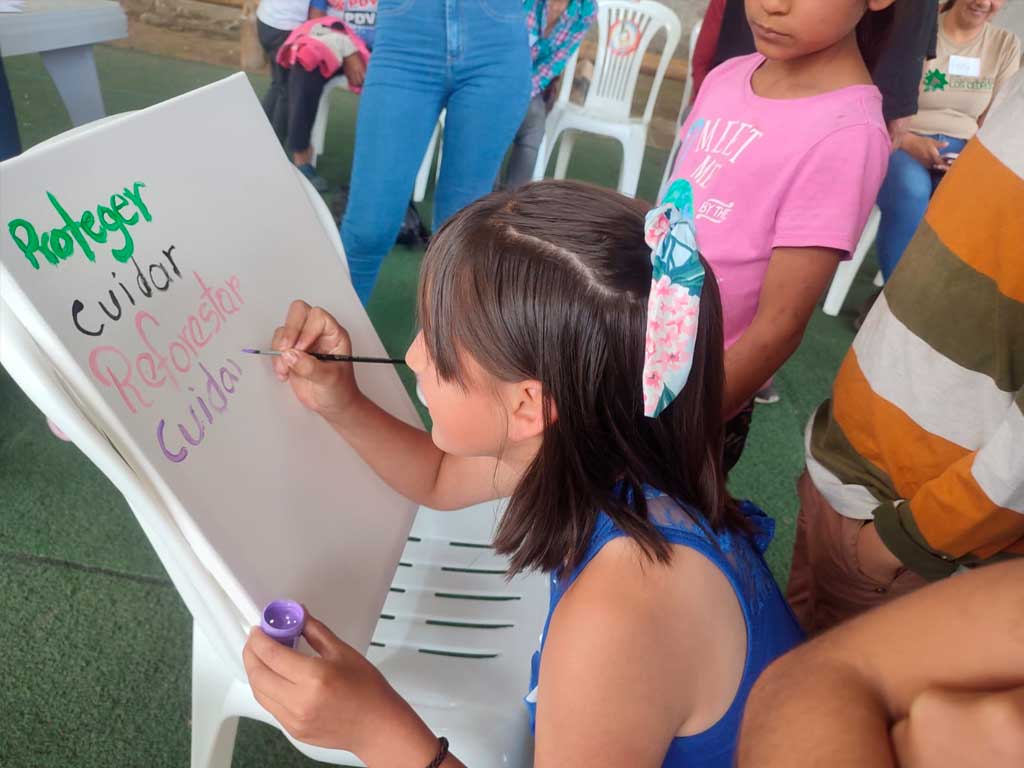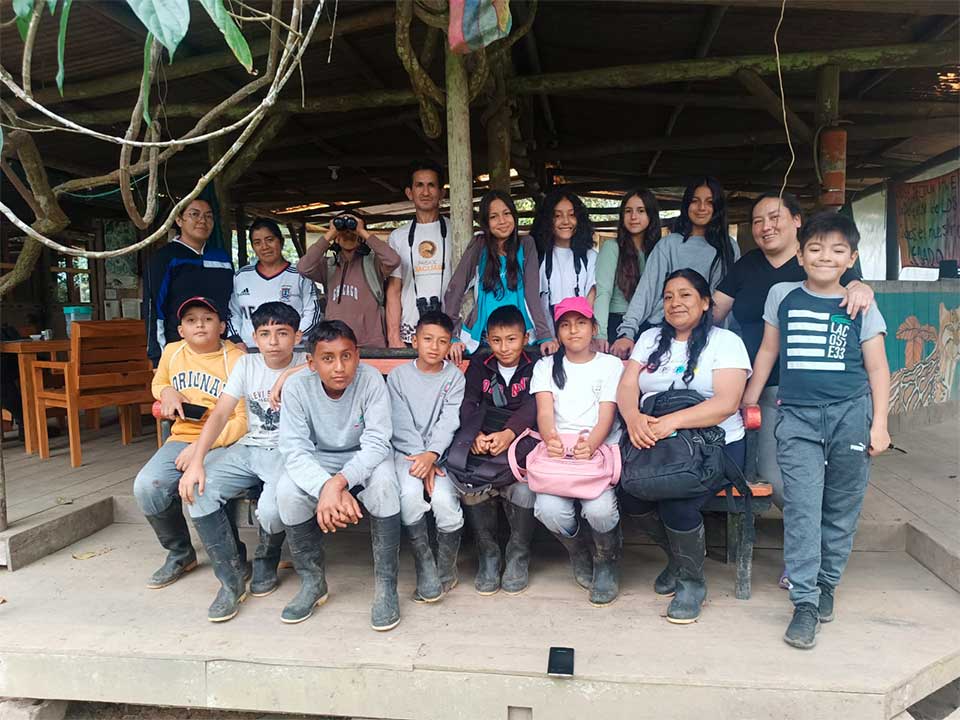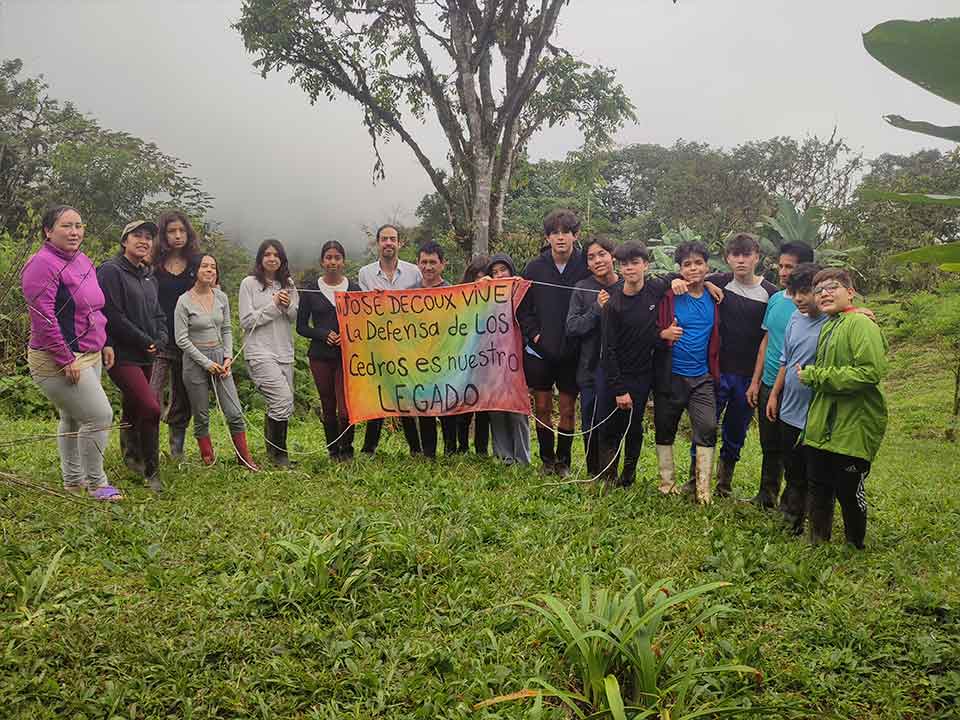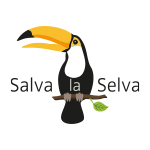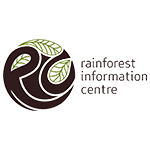by Monserratte Vásquez
Share
During the months of September and January 2024, a group of around 15 community members from the Los Manduriacos Valley were trained in the evaluation of the ecological quality of rivers, as part of the topics addressed in the ranger training course.


In this course, we had the important collaboration of the PhD in Ecology Blanca Ríos, professor at the University of the Americas (UDLA) and member of the BIOMAS research group, and the PhD in Biology Silvana Gallegos, both with extensive experience in biomonitoring of rivers and the development of conservation strategies.
Throughout this time, the course participants have monitored some rivers that originate in the Los Cedros Protective Forest and its area of influence, evaluating their physical, chemical and ecological characteristics, as well as the application of the protocol for Andean rivers through the use of aquatic macroinvertebrates as bioindicators.

The 3 rivers that originate from the Los Cedros Protective Forest, such as the Verde, Los Cedros and Manduriaco Chico, which feed the micro-basins of the Magdalena, La Plata and Manduriaco Grande, are one of its greatest riches, as they provide vital liquid to 9 communities in the area. area of influence. Unfortunately, there are several anthropogenic pressures that threaten their quality and balance and this is precisely where the importance of monitoring rivers lies in order to guarantee ecological balance and the right of communities to access quality water.

The training of rangers in charge of the Los Cedros Scientific Station is part of the commitment that we maintain with the communities of the Los Cedros Protective Forest area with the objective of promoting citizen science and contributing to community management for the management and conservation of the B.P. Los Cedros as established in its 2022-2026 Management Plan.
Related post
In September, the Los Cedros Scientific Station was the epicenter of a training course for “Honorific Inspectors,” run by the Ministry of the Environment, Water, and Ecological Transition (MAATE, initials in Spanish) and promoted by the Technical Secretary and Basins Council of the Intag-Toisán Conservation and Sustainable Use Area (ACUS-MIT, initials in Spanish), Toisán Corporation […]
During July and August, in the Magdalena Alto community, located in the area surrounded the Los Cedros Protected Forest, a workshop series was developed to advance Human Rights and Rights of Nature. The course saw significant participation from the community’s youth, adults, and elderly alike.
Earlier this month in August, we had an important and fun visit by a class from the Isla Santa Isabel Educational Unit from the local community of San Miguel de Chontal, who planned an excursion to the Los Cedros Protected Forest.
From June 10 to 14, students from Pachamama School (Quito) spent the week pursuing educational projects at the Los Cedros Scientific Station. Applying this effective educational strategy with experimental and observation methods inside the forest, they built on the knowledge previously acquired in the classrooms.


